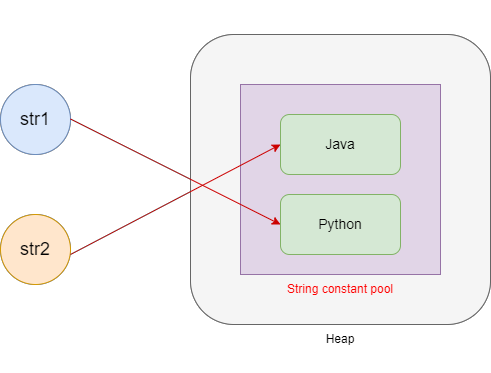Why Are Strings Immutable in Java? In-depth Analysis for Programmers
Wiki Article
Immutable Strings: A Key Part in Ensuring Data Consistency and Dependability
In the realm of information administration, the significance of immutable strings can not be overstated. These unchanging sequences of personalities play a crucial function in promoting the integrity and accuracy of info within systems. By preserving a state of immutability, data consistency is made certain, fostering a structure of dependability upon which essential processes count. The idea of immutable strings transcends plain formality; it is a linchpin in the complicated internet of data governance. As we discover the benefits, application techniques, and sensible applications of immutable strings, a clearer photo emerges of their vital nature in guarding the digital landscape.The Principle of Immutable Strings
Unalterable strings, an essential idea in programming, refer to strings that can not be changed once they are created. Essentially, when a string value is designated, any operation that shows up to customize the string really develops a brand-new string. This immutability makes sure information uniformity and reliability in applications, as it prevents unforeseen modifications to the original data.
Benefits in Data Uniformity

Information consistency is important in numerous aspects of software growth, including data source administration, multi-threaded environments, and dispersed systems (Why are strings immutable in Java?). Immutable strings add significantly to achieving this consistency by preventing information corruption because of concurrent access. In situations where several processes or threads connect with the exact same information at the same time, immutable strings serve as a safeguard versus race problems and synchronization problems
Additionally, the immutability of strings simplifies debugging and testing procedures. With unalterable strings, designers can trust that when a string is set, it will certainly stay unmodified, making it much easier to trace the resource of mistakes and making certain that test instances produce regular results. This integrity in information managing ultimately leads to a lot more secure and durable applications.

Executing Immutable Strings
Making sure the immutability of strings requires a thoughtful strategy to their execution in software program growth. Once a string things is produced, one crucial technique is to make string classes in a means that stops adjustments. By making strings immutable, designers can improve information consistency and integrity in their applications.To apply unalterable strings successfully, designers must favor producing new string objects instead of modifying existing ones. This method ensures that when a string is designated a value, their explanation it can not be altered. Furthermore, any operation that shows up to change the string ought to produce a brand-new string with the preferred adjustments rather than altering the original.
Furthermore, making use of immutable strings can streamline concurrency administration in multi-threaded settings. Given that immutable strings can not be altered after production, they can be safely shared among numerous strings without the threat of information corruption.
Duty in Integrity Guarantee
In software development, the use of unalterable strings plays a critical role in making sure the reliability of data procedures. Immutable strings, as soon as created, can not be modified, making certain that the data they stand for continues to be consistent throughout the application's implementation. This immutability property provides a level of assurance that the data being refined will certainly not be unintentionally transformed, leading to unexpected outcomes or mistakes in the system.By incorporating immutable strings right into software program layout, designers can boost the integrity of their applications by minimizing the threats related to mutable data - Why are strings immutable in Java?. Unalterable strings assist in avoiding information corruption or unintentional modifications, which can be particularly critical when handling sensitive information or when information honesty is critical
Additionally, using immutable strings simplifies simultaneous processing, as multiple strings can securely accessibility and share string data without the risk of one thread altering the web content while one more reads it. This element adds substantially to the general integrity of the software system, making sure consistent and foreseeable habits in data taking care of operations.
Applications and System Combination
The smooth integration of unalterable strings into various applications and systems is crucial for guaranteeing durable information uniformity and dependability across varied technological settings - Why are strings immutable he said in Java?. Unalterable strings play an important duty in improving the honesty of data exchanges and interactions within complex software application ecological communities. By incorporating immutable strings into applications, programmers can minimize the threats related to data meddling, unapproved alterations, and inadvertent modifications, therefore fortifying the overall safety and security posture of the systemUnalterable strings can improve interoperability between diverse systems by offering a standardized style for information depiction, making it possible for more reliable information processing and exchange procedures throughout interconnected platforms. By adopting immutable strings in applications and system combination processes, companies can fortify their information this website infrastructure and maintain the dependability and consistency of their information assets.
Verdict
In verdict, unalterable strings play an essential role in maintaining information uniformity and dependability in numerous applications and system integrations. By making certain that strings can not be changed when developed, the honesty of information is preserved, reducing the threat of errors and variances. Executing immutable strings can significantly enhance the reliability of systems, inevitably bring about more exact and reliable information processing.
Report this wiki page